
Liver cancer evolution in children and adults
🖥️🧬 Bulk, single-cell, spatial | Mosaicism
http://zucmanlab.com Cordeliers Research Center
![4-panel comic. (1) [Person 1 with ponytail flanked by person with short hair and another person speaking into microphone at podium] PERSON 1: In the early 2010s, researchers found that many major scientific results couldn’t be reproduced. (2) PERSON 1: Over a decade into the replication crisis, we wanted to see if today’s studies have become more robust. (3) PERSON 1: Unfortunately, our replication analysis has found exactly the same problems that those 2010s researchers did. (4) [newspaper with image of speakers from previous panels] Headline: Replication Crisis Solved](https://cdn.bsky.app/img/feed_thumbnail/plain/did:plc:cz73r7iyiqn26upot4jtjdhk/bafkreibwuu57ullc7vacjyno6c5z3gtyakkg2qub6cn3dbbjdpn2kaowmi@jpeg)
www.sciencedirect.com/science/arti...

www.sciencedirect.com/science/arti...
@crcordeliers.bsky.social

@crcordeliers.bsky.social
🤝 We had the pleasure of welcoming @tz-hirsch.bsky.social for a presentation titled: Evolution of Hepatoblastoma: From #Liver Development to Chemoresistance.
🧫 His talk sparked dynamic discussions during the session on #hepatic #pathogenesis.




🤝 We had the pleasure of welcoming @tz-hirsch.bsky.social for a presentation titled: Evolution of Hepatoblastoma: From #Liver Development to Chemoresistance.
🧫 His talk sparked dynamic discussions during the session on #hepatic #pathogenesis.

Une occasion de favoriser l'échange, la collaboration et la visibilité des talents émergents dans le monde de la recherche!



Une occasion de favoriser l'échange, la collaboration et la visibilité des talents émergents dans le monde de la recherche!







go.bsky.app/FEoaJMc
go.bsky.app/6EcjWNA
Together they include PIs, oncologists, students, postdocs, journals, patient advocates, and organizations supporting cancer research 🧪🔬⚕️
Both are full - sorry I can't add any more 😅
~300 researchers, oncologists, students, postdocs, patient advocates, and organizations supporting cancer research 🧪🔬⚕️
I hope you'll find these useful to build our community here
Pack 1: go.bsky.app/FEoaJMc
Pack 2: go.bsky.app/6EcjWNA
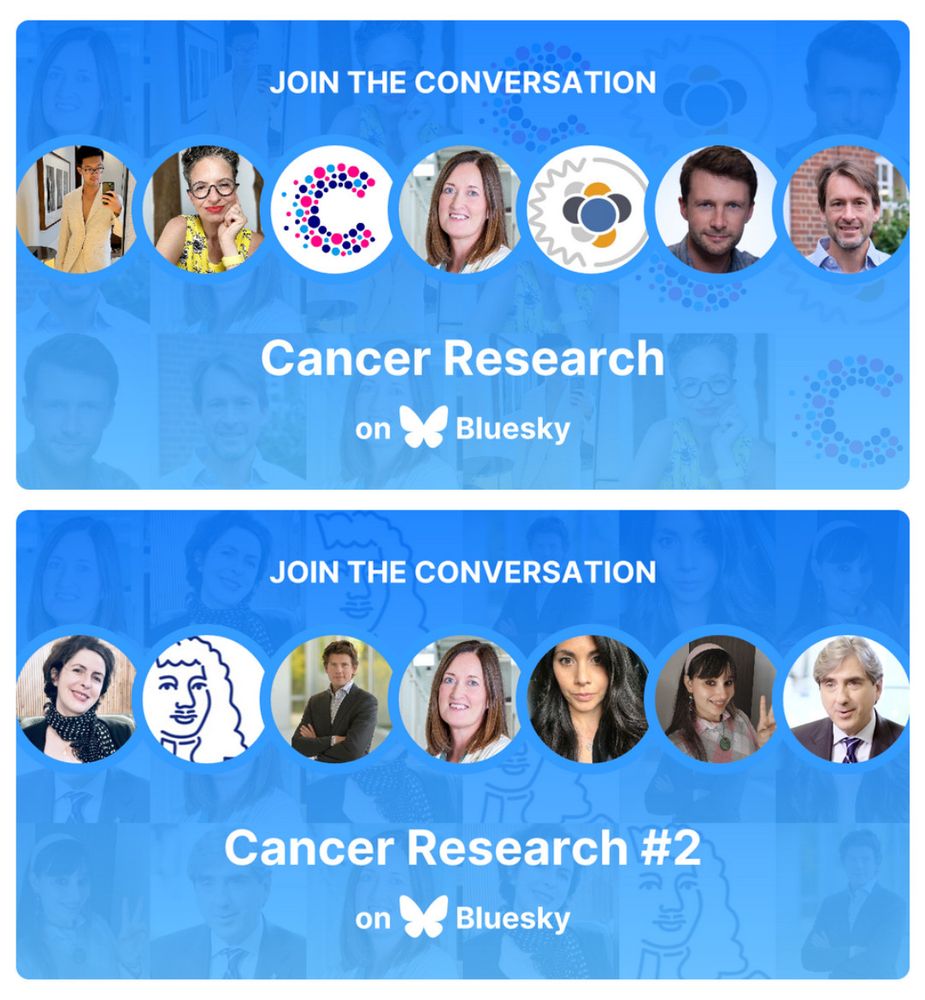
go.bsky.app/FEoaJMc
go.bsky.app/6EcjWNA
Together they include PIs, oncologists, students, postdocs, journals, patient advocates, and organizations supporting cancer research 🧪🔬⚕️
Both are full - sorry I can't add any more 😅
This was an incredible team effort w/ @jennifergarrison.bsky.social #TammyLan @davidsebfischer.bsky.social #AlisonKochersberger #RuthRaichur #SophiaSzady
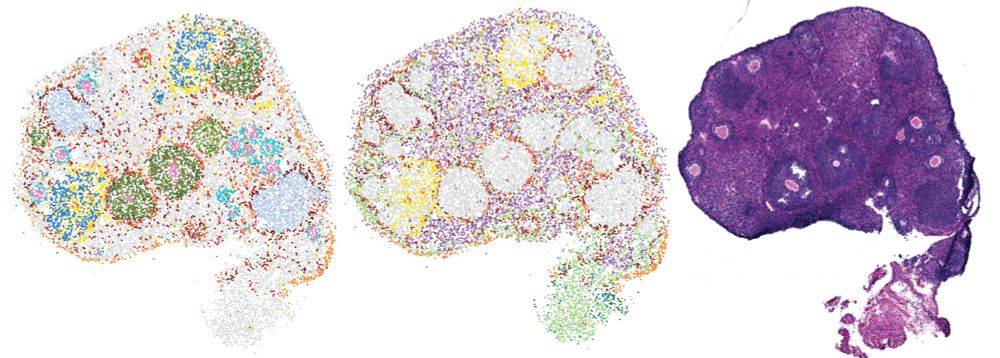
This was an incredible team effort w/ @jennifergarrison.bsky.social #TammyLan @davidsebfischer.bsky.social #AlisonKochersberger #RuthRaichur #SophiaSzady
github.com/HiDiHlabs/sp...
It's as easy as Leiden, but as performant as the best in class. Give it a try and let us know if it works for you!

github.com/HiDiHlabs/sp...
It's as easy as Leiden, but as performant as the best in class. Give it a try and let us know if it works for you!

Why? Which ones?
We conducted an unbiased analysis of response biomarkers and found that hundreds of possible biomarkers collapse into five latent, orthogonal factors that underlie immunotherapy response.
www.nature.com/articles/s41...
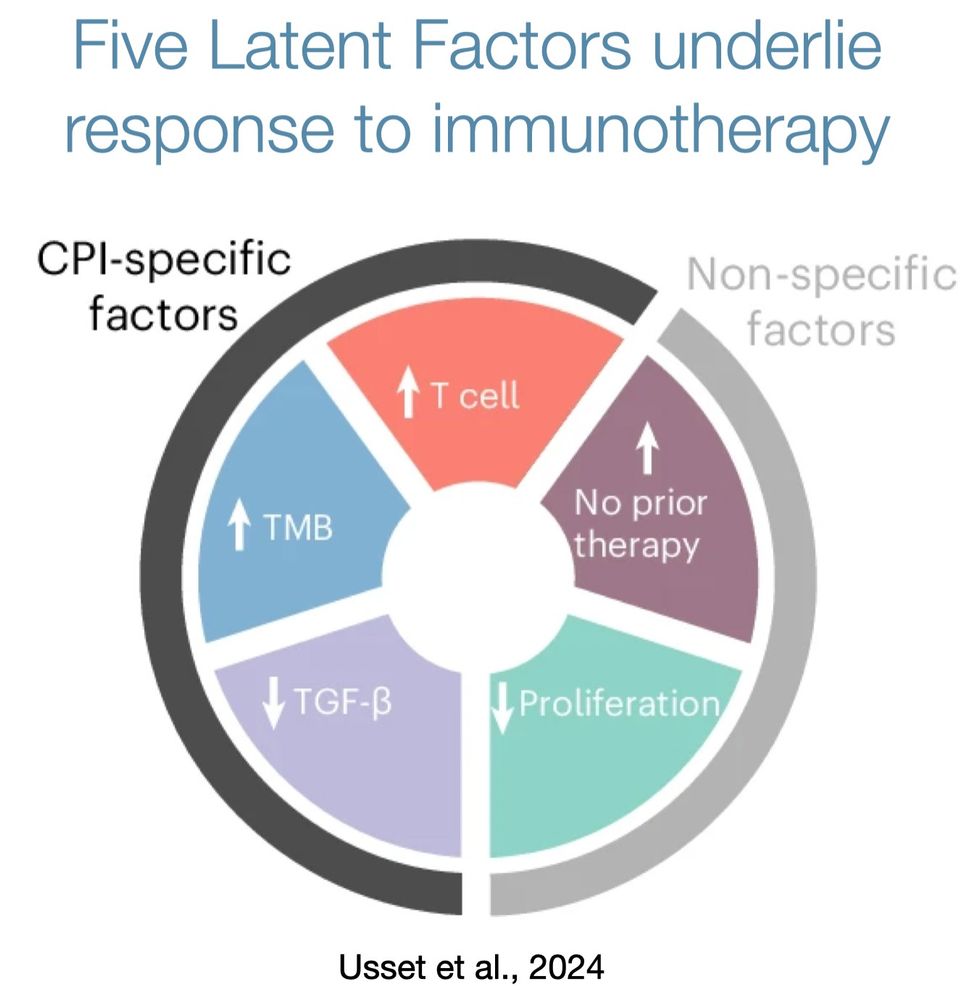
Why? Which ones?
We conducted an unbiased analysis of response biomarkers and found that hundreds of possible biomarkers collapse into five latent, orthogonal factors that underlie immunotherapy response.
www.nature.com/articles/s41...
So how can we ever achieve #gender #equality?
We discuss various strategies in this #Cell Commentary
#WomeninSTEM
www.cell.com/cell/fulltex...
🧵 1/
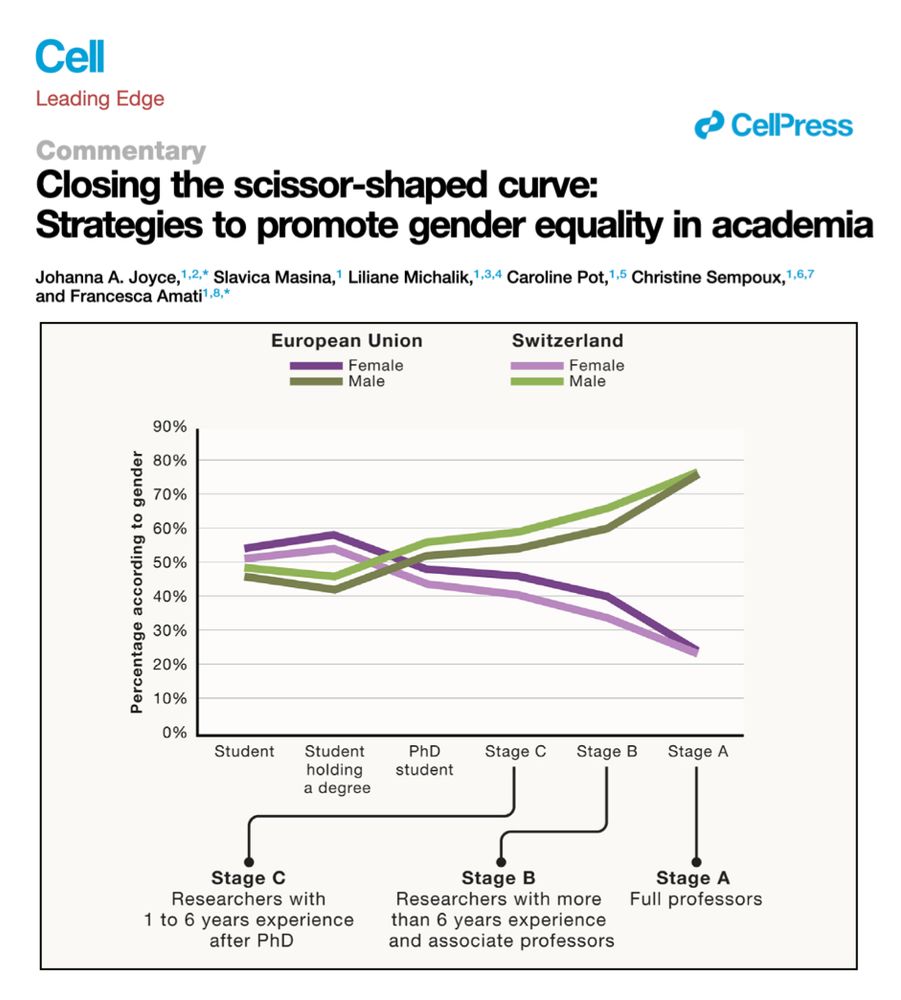
So how can we ever achieve #gender #equality?
We discuss various strategies in this #Cell Commentary
#WomeninSTEM
www.cell.com/cell/fulltex...
🧵 1/
We wanted to see if our genomic technologies could shed light into those exceptional cases.
Read about it in this recent paper:
tinyurl.com/yt9m584d

We wanted to see if our genomic technologies could shed light into those exceptional cases.
Read about it in this recent paper:
tinyurl.com/yt9m584d
www.science.org/doi/10.1126/...

www.science.org/doi/10.1126/...
Computational analysis of 33,218 tumor genomes to identify cancer genes and driver mutations
➡️ Compendium of Cancer Driver Genes - www.intogen.org
➡️ In Silico Saturation Mutagenesis of Cancer Genes - www.intogen.org/boostdm

Computational analysis of 33,218 tumor genomes to identify cancer genes and driver mutations
➡️ Compendium of Cancer Driver Genes - www.intogen.org
➡️ In Silico Saturation Mutagenesis of Cancer Genes - www.intogen.org/boostdm

www.nature.com/articles/s43...

www.nature.com/articles/s43...
Please send a message to be added! 🎗️
go.bsky.app/Tpd9QnM
Please send a message to be added! 🎗️
go.bsky.app/Tpd9QnM

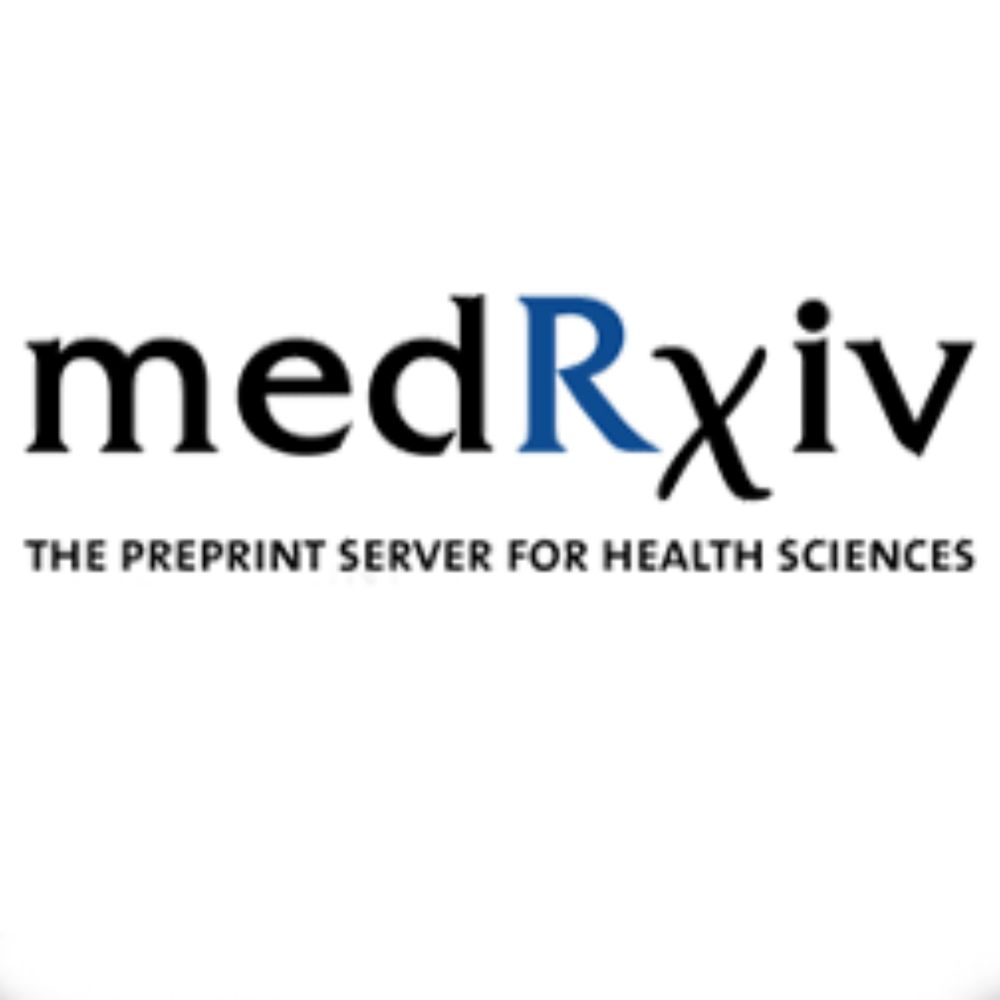
biorxiv.org/content/10.1101/2024.11.06.622266v1

biorxiv.org/content/10.1101/2024.11.06.622266v1


